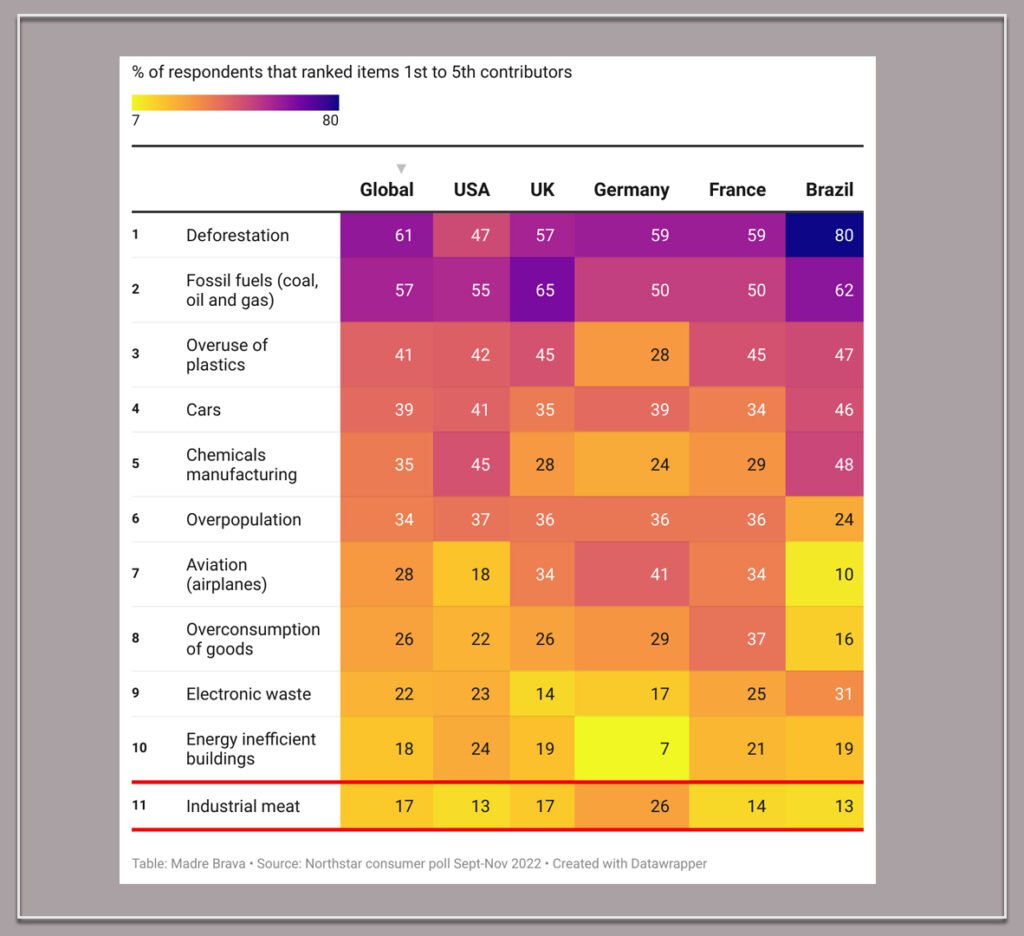According to respondents surveyed globally by sustainable food NGO Madre Brava, despite activists persistently denouncing animal agriculture in the media as the number one enemy, respondents in the surveyed countries do not consider animal agriculture as the main factor causing climate change.
A study published earlier this year reveals a less skewed view of the livestock industry than the usual media headlines. Citizens in Brazil, France, Germany, the UK and the US eat ‘industriously farmed’ meat According to a global survey by Northstar Research, commissioned by sustainable food NGO Madre Brava, people do not view livestock farming and meat production as the main cause of greenhouse gas emissions, contrary to expectations. survey results revealed.
Data shows that the livestock sector contributes to 14.5% of global greenhouse gas emissions, while industry accounts for a higher proportion. Energy sectors account for more than 80%, that is, the overwhelming majority; It is perhaps an issue that citizens are more aware of than most people think. The survey results were therefore quite unexpected for the NGO, given the heavily promoted “green” and animal rights-based narratives that agriculture is the biggest polluter.
In the five markets studied, livestock farming was one of the largest sources of greenhouse gases and a source of minimal emissions, although industrial meat was seen as a smaller source of emissions than cars or airplanes, accounting for 14.5% of all anthropogenic emissions (more recent estimates put this at 16.5%). 28% accounts for 32% of anthropogenic methane, which is almost on par with methane emissions from all fossil fuels.

At a time when the international climate community is increasingly focused on food’s contribution to climate change, this global survey reveals the gap between scientific evidence and public perception. The UN Food and Agriculture Organization estimates that the livestock industry emitted more than 8 Gigatonnes of CO2-e in 2017; This is on par with the CO2 released by all the cars, trucks, trains, planes and ships in the world in the same year.
The misperception of industrial meat by major meat packers may be due to the fact that the vast majority of respondents (over 90%) stated that they knew little or nothing about industrial meat production. According to the Northstar survey, the lowest awareness is found in the UK; Here almost 3 in 4 Britons (74%) say they know nothing about how industrial meat is produced. Almost 7 in 10 people in the US know nothing about industrial meat production. Among the countries surveyed, Brazilians are the most informed, yet 42% of them know nothing about industrial meat production.
Source:









